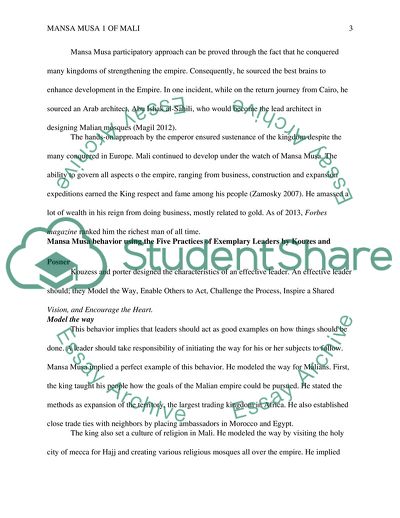Cite this document
(MUSA of Mali Essay Example | Topics and Well Written Essays - 1750 words, n.d.)
MUSA of Mali Essay Example | Topics and Well Written Essays - 1750 words. https://studentshare.org/biographies/1823095-musa-of-mali
MUSA of Mali Essay Example | Topics and Well Written Essays - 1750 words. https://studentshare.org/biographies/1823095-musa-of-mali
(MUSA of Mali Essay Example | Topics and Well Written Essays - 1750 Words)
MUSA of Mali Essay Example | Topics and Well Written Essays - 1750 Words. https://studentshare.org/biographies/1823095-musa-of-mali.
MUSA of Mali Essay Example | Topics and Well Written Essays - 1750 Words. https://studentshare.org/biographies/1823095-musa-of-mali.
“MUSA of Mali Essay Example | Topics and Well Written Essays - 1750 Words”. https://studentshare.org/biographies/1823095-musa-of-mali.


